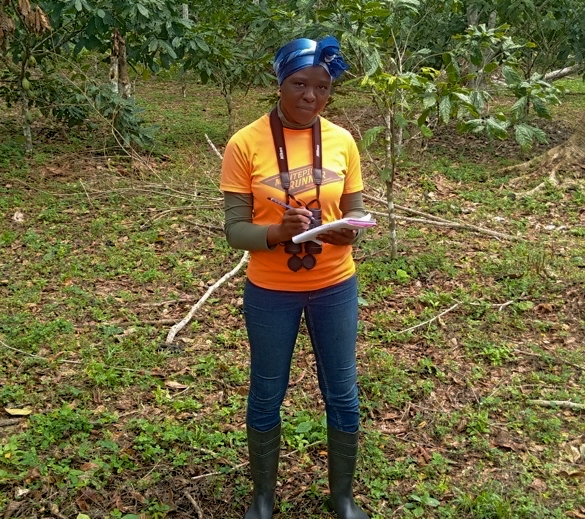Chocolate is among resources highly required worldwide and drive land use conversion at an alarming rate. There is an urgent need to balance this agricultural production with the protection of biodiversity. This balance can be achieved by managing ecosystems for species that support crops (species that provide pest control) and promote biodiversity. In Cameroon, a recent study provided proof that 12 species of bird consume different cocoa pests, including considerable numbers of Brown Capsid, the most destructive cocoa pest on Earth (Babin et al., 2010). Over 68% of bird species are susceptible to haemosporidian parasites (Haemoproteus, Plasmodium and Leucocytozoon spp.) known to reduce the fitness of the hosts and in some cases lead to death (Paxton et al., 2016). However, their effect on bird eating pests in Cameroonian cocoa farms remains unknown. Better understanding the pathogenesis of avian haemosporidiosis in insectivorous birds might ultimately contribute to improvement of bird health and wildlife conservation policies. The project aims to assess 1) prevalence and intensity of haemosporidian parasites in the targeted species, 2) seasonal variation in parasite prevalence and intensity, and 3) risk factors associated to parasite prevalence.

TCHOUMBOU Mélanie Adèle
Year Awarded: 2023
Published: